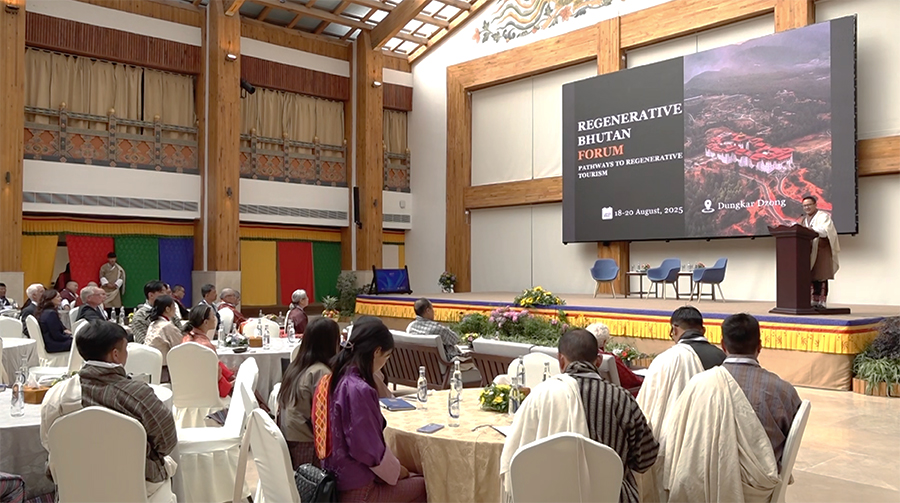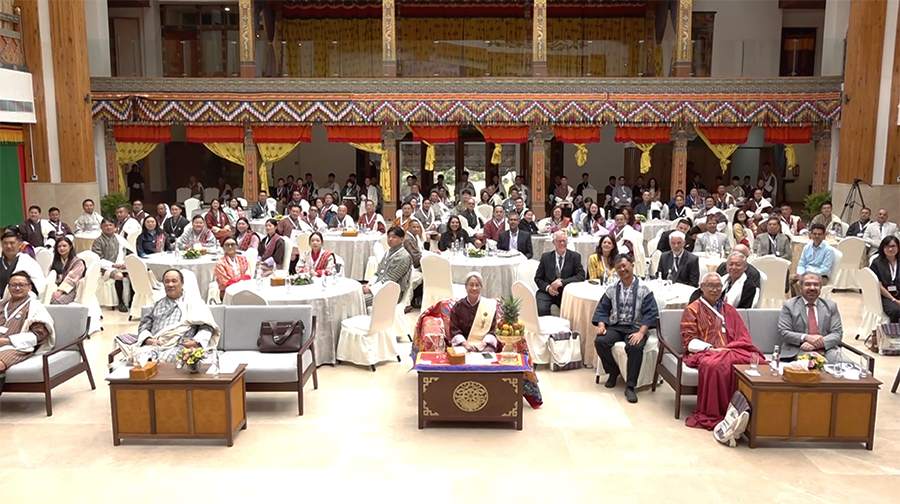 Bhutan has taken a new step in tourism with the launch of regenerative tourism. Unlike traditional tourism models, which mainly focus on reducing harm, regenerative tourism goes a step further. It works to restore nature, strengthen communities, and create deeper connections between visitors and the places they visit. This approach was introduced at the first-ever Regenerative Bhutan Forum, inaugurated at Dungkar Dzong in Paro today.
Bhutan has taken a new step in tourism with the launch of regenerative tourism. Unlike traditional tourism models, which mainly focus on reducing harm, regenerative tourism goes a step further. It works to restore nature, strengthen communities, and create deeper connections between visitors and the places they visit. This approach was introduced at the first-ever Regenerative Bhutan Forum, inaugurated at Dungkar Dzong in Paro today.
In practice, regenerative tourism can help revive degraded landscapes and improve people’s livelihoods and allow visitors to leave Bhutan better than they found it.
The idea is that tourism should give back more to people and places than it takes by enriching communities, protecting traditions and helping the environment heal and thrive.
“We have shifted from doing less harm, producing fewer emissions, using less water, etc, to starting to think that we can make things better. So, that’s restoring things which are damaged, places which are damaged, and also broadening our scope from not just focusing on the environment, but also on the social conditions,” said Anna Pollock, Speaker, Regenerative Bhutan Forum.
Bhutanese officials said the new approach aligns closely with the country’s guiding philosophy of Gross National Happiness.
They said that tourism should not only bring economic benefits but also promote wellbeing, build resilience, and support renewal for both people and the environment.
“There’s a big market and huge opportunity. The value is huge. For example, people say that it’s 1:10. The normal tourist is 1 and regenerative, they like to contribute 10 times more. They don’t mind contributing. They want to believe that it’s much more than what they experience, much more than what they get. You know, so that’s a huge opportunity. I think that’s where Bhutan should be looking at,” said Damcho Rinzin, Director, Department of Tourism.
“The Department of Tourism has introduced the Bhutan Integrated Tourism Master Plan, which builds on the ‘High Value, Low Volume’ policy. At its core, the plan seeks to embed regenerative tourism,” said Tashi Wangmo, Industry Commerce and Employment Secretary.
Over the next two days, participants will take part in interactive sessions on topics such as tracking carbon use, building green supply chains, and promoting sustainable communication.
 Through the forum, the Department of Tourism and the Association of Bhutanese Tour Operators hope to position Bhutan as a global pioneer moving from conservation and sustainability to a new model that gives back more than it takes.
Through the forum, the Department of Tourism and the Association of Bhutanese Tour Operators hope to position Bhutan as a global pioneer moving from conservation and sustainability to a new model that gives back more than it takes.
Karma Samten Wangda
Edited by Sonam Pem








